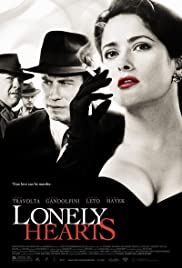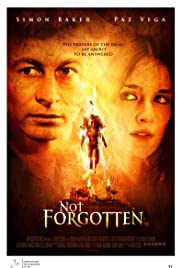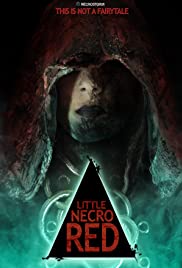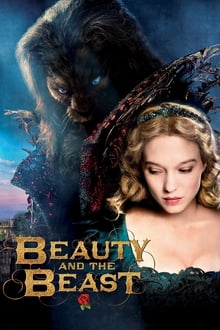
A 13-year-old girl grows up between a boxing ring and the street. Her friends are guys who kill and rob. In the 1990s the whole city hates them, but for Masha they are the best people in the world, who love and protect her. She sings them jazz and dreams of becoming a singer. But one day Masha learns who they actually are and what they have done to her life and family. She matures, leaves the small city for Moscow, trying to break with her past. But one day the past stands directly before her.
You May Also Like

In the late 1940’s, Martha Beck and Raymond Fernandez were America’s notorious “Lonely Hearts Killers”. Their lethal scam was simple; they would swindle and then viciously murder lovelorn war widows who would answer their personal ads in which Ray would describe himself as a sexy Latin Lover. Based on a true story.

Joan and Michael invite their dearest friends over for dinner to discuss the passing of Joan’s husband Neil. But as each guest arrives dark secrets are revealed and the main course turns out to be murder.


A society girl tries to make a go of her marriage to an archaeologist.

Set in a Tex-Mex border town, Not Forgotten is a classic psychological thriller about Jack and Amaya Bishop, a couple who must come to terms with their tortured pasts in order to save their kidnapped daughter. It is a tale taut with intrigue and steeped in Latino mysticism, where the line between what’s real and what’s imagined becomes hopelessly blurred.

A pickpocket unwittingly lifts a message destined for enemy agents and becomes a target for a Communist spy ring.

In 2009, 28-year-old Li Zi Wei and 17-year-old Huang Yu Xuan met each other. These are two innocent and unaffected lives that could each feel like marks from their past and present lives. However, they could not find sufficient proof to fill up the emptiness at the bottom of their hearts. An accident let them fall into another Mobius loop that had already happened countless times. Only then did they realize that in different times and spaces, they once had a deep, true love that had passed through countless timelines to search for each other with no regrets. But in that story, their deepest love came at the highest price. If they could start again, would they choose to meet by chance in ordinary life or be scarred by the memories etched in their heart and bones? Or perhaps they can choose to hurt and love all over again, betting on a different ending?

Once upon a time, after many years without contact, Diane Hunter received a phone call from her long-lost friend Angela. Angela’s daughter, Annie (aka “Little Red”), mysteriously disappeared, but the police never found her body. Now, Angela’s life is being plagued by inexplicable events. While Diane and Angela begin to shed light on the mystery, a masked maniac known as “The Wolf” is on the prowl, leaving a trail of blood and carnage in his wake. The further Diane and Angela delve into madness, the deeper the doubt burrows into their minds: is Annie alive? This is the most gory, and twisted Slasher you have ever seen: this is not a fairy-tale.

Teenagers Luke, Malachy, and Michelle embark on a wild weekend of drink, drugs, shop-lifting and stealing cars. But what starts out as a game turns deadly serious when the three discover that they can’t get off the wild ride they’ve set in motion.

A struggling photographer gets more than he bargained for, discovering the truth of what his new camera is really capable of.

Beauty and the Beast is the adaptation of a story by Madame de Villeneuve. Published anonymously in 1740 as La Jeune Américaine et les contes marins, it paints a portrait of Belle, a joyful and touching young girl who falls in love with the Beast, a cursed creature in search of love and redemption. In 1760, a condensed children’s version was published. It was from this version that Jean Cocteau and then Walt Disney drew their famous adaptations. Overshadowed, the original version by Madame de Villeneuve has never been adapted for the screen… until now!